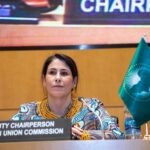…Advocate Tembeka Ngcukaitobi tells the South African High Court that Zambia, as a foreign state, cannot enforce its burial laws in South Africa, warns that allowing such would set a dangerous precedent
By GRACE CHAILE
“YOU cannot reinstate benefits on a corpse. A corpse has no rights.” This was the sharp argument delivered by South African Advocate Tembeka Ngcukaitobi in the Gauteng High Court in Pretoria, as he challenged the Zambian government’s claim to repatriate the remains of former President Edgar Chagwa Lungu for a State funeral.
Representing the Lungu family, Ngcukaitobi insisted that the government’s stance was legally flawed and morally unsound, stating that at the time of his death, Mr. Lungu had already lost his presidential benefits.
He argued that what the government was attempting was artificial and amounted to reinstating rights on a corpse, something the law does not recognise.
Advocate Ngcukaitobi argued that even if the Zambian government had maintained the benefits, it was the widow, Esther Lungu, who would be entitled, submitting that the former First Lady had every right to reject them as no one was compelled to accept benefits against their will.
“The Kenneth Kaunda decision is distinguishable because of the fact that he died while enjoying the benefits. Mr Lungu died whilst the benefits had been removed. You cannot reinstate benefits on a corpse, a corpse has no rights,” Advocate Ngcukaitobi argued.
He submitted that he was not before the three High Court Judges presiding over the case in which the Zambia government has sued the family of former President Lungu told the court to show their judgement was wrong, but to prove that it was in fact ridiculous.
“The right of the surviving spouse and family to have exclusive say on the deceased’s burial is sacrosanct. That is so because the burial right is intensely personal. The exclusive right to choose how to bury is the inner sanctum of one’s family life and is a fundamental part of each person’s autonomy that cannot be interfered with by the state or negated by other purported state interests,” he argued.
At the centre of the dispute is whether Zambia, as a foreign state, can enforce its burial laws in South Africa. Ngcukaitobi described this as deeply unsettling, warning that allowing such an approach would set a dangerous precedent by permitting foreign laws to be applied in domestic courts.
He submitted that South African law was clear, arguing a corpse is not property and cannot be contracted over, stating that burial rights devolved exclusively to the surviving spouse and family.
“Sirs and my Lady, l am not here to show that you were wrong but find it ridiculous for a foreign government to ask our sovereign courts to impose their own country’s abuse of court system to ours. It is unthinkable! Family trumps government every time. No law, foreign or domestic, can override the widow’s decision,” Advocate Ngcukaitobi said.
He argued that the rights to privacy, dignity and equality protect the Lungu family from State intrusion in burial matters, stating that any purported agreement over human remains was against public policy and unenforceable under South African law.
He pointed out that Zambia had failed to provide expert evidence of its laws, instead merely making assertions without proof.
The South African advocate argued that the surviving spouse’s authority over burial was “basically unqualified,” and governments could not seize control of such deeply personal decisions.
He warned that this case was not just about Mr. Lungu or his widow but about protecting family autonomy, the dignity of the deceased, and the constitutional integrity of South African courts.
Judge President Aubrey Ledwaba questioned Mr Ngcukaitobi on issues of succession law, particularly how disputes should be resolved if heirs could not agree. The advocate responded that heirs could negotiate and reach consensus, but what remained prohibited was contracting over a corpse.
The Lungu family is seeking leave to appeal to the Supreme Court of Appeal, challenging the ruling that allowed the Zambian government to repatriate the former president’s remains.









